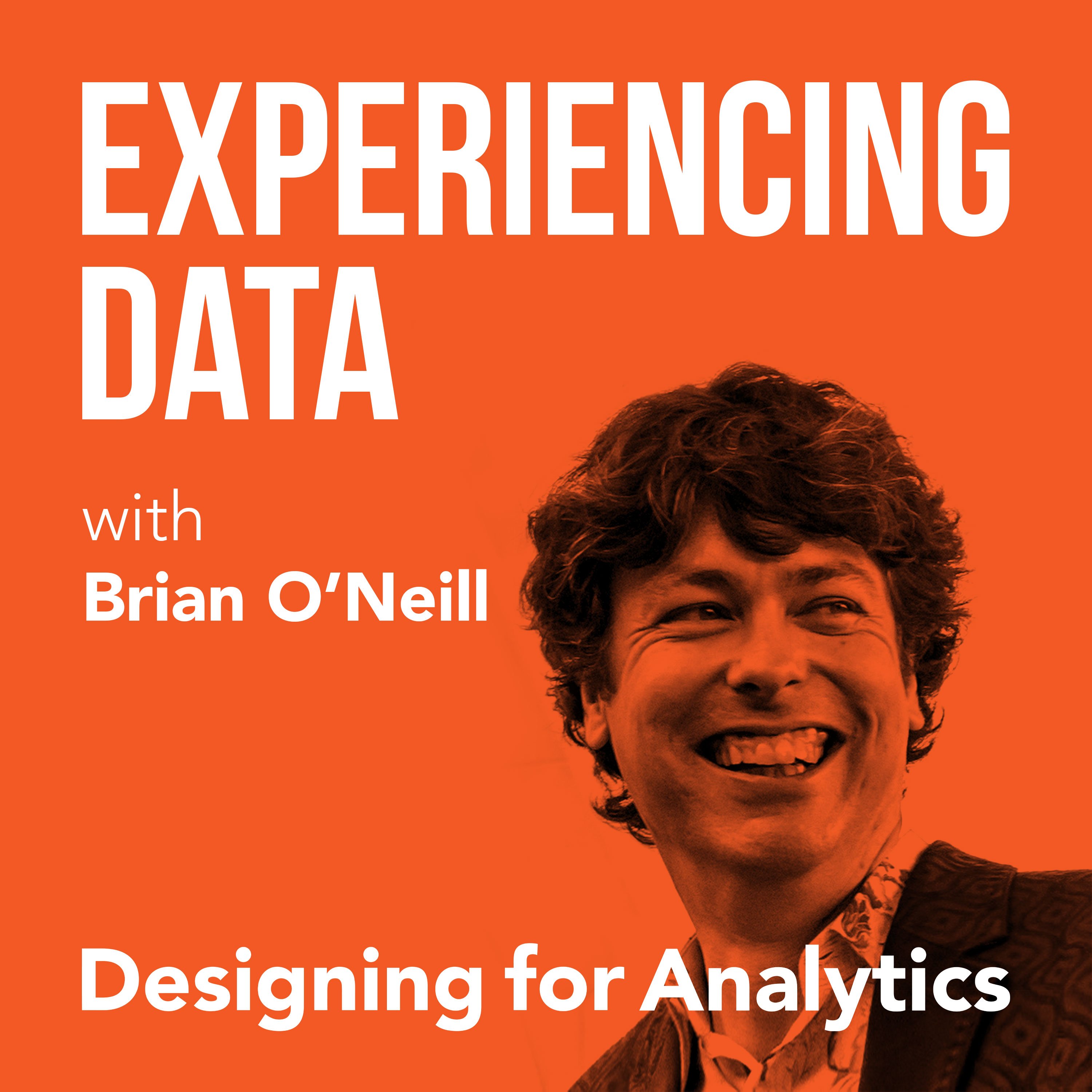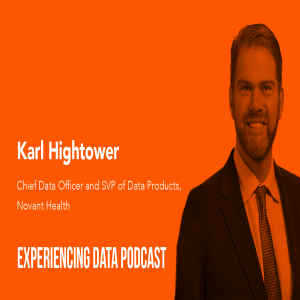

141.5K
Downloads
173
Episodes
Is the value of your enterprise analytics SAAS or AI product not obvious through it’s UI/UX? Got the data and ML models right...but user adoption of your dashboards and UI isn’t what you hoped it would be? While it is easier than ever to create AI and analytics solutions from a technology perspective, do you find as a founder or product leader that getting users to use and buyers to buy seems harder than it should be? If you lead an internal enterprise data team, have you heard that a ”data product” approach can help—but you’re concerned it’s all hype? My name is Brian T. O’Neill, and on Experiencing Data—one of the top 2% of podcasts in the world—I share the stories of leaders who are leveraging product and UX design to make SAAS analytics, AI applications, and internal data products indispensable to their customers. After all, you can’t create business value with data if the humans in the loop can’t or won’t use your solutions. Every 2 weeks, I release interviews with experts and impressive people I’ve met who are doing interesting work at the intersection of enterprise software product management, UX design, AI and analytics—work that you need to hear about and from whom I hope you can borrow strategies. I also occasionally record solo episodes on applying UI/UX design strategies to data products—so you and your team can unlock financial value by making your users’ and customers’ lives better. Hashtag: #ExperiencingData. JOIN MY INSIGHTS LIST FOR 1-PAGE EPISODE SUMMARIES, TRANSCRIPTS, AND FREE UX STRATEGY TIPS https://designingforanalytics.com/ed ABOUT THE HOST, BRIAN T. O’NEILL: https://designingforanalytics.com/bio/
Episodes

Tuesday Aug 11, 2020
Tuesday Aug 11, 2020
Healthcare professionals need access to decision support tools that  deliver the right information, at the right time. In a busy healthcare facility, where countless decisions are made on a daily basis, it is crucial that any analytical tools provided actually yield useful decision support to the target customer. In this episode, I talked to Karl Hightower from Novant Health about how he and his team define “quality” when it comes to data products, and what they do to meet that definition in their daily work. Karl Hightower is the Chief Data Officer and SVP of Data Products at Novant Health, a busy hospital and medical group in the Southeast United States with over 16 hospitals and more than 600 clinics. Karl and I took a deep dive into data product management, and how Karl and his team are designing products and services that help empower all of the organization’s decision makers. In our chat, we covered:
deliver the right information, at the right time. In a busy healthcare facility, where countless decisions are made on a daily basis, it is crucial that any analytical tools provided actually yield useful decision support to the target customer. In this episode, I talked to Karl Hightower from Novant Health about how he and his team define “quality” when it comes to data products, and what they do to meet that definition in their daily work. Karl Hightower is the Chief Data Officer and SVP of Data Products at Novant Health, a busy hospital and medical group in the Southeast United States with over 16 hospitals and more than 600 clinics. Karl and I took a deep dive into data product management, and how Karl and his team are designing products and services that help empower all of the organization’s decision makers. In our chat, we covered:
- How a non-tech company like Novant Health approaches data product management
- The challenges of designing data products with empathy in mind while being in an environment involving physicians and healthcare professionalsThe metric Karl’s team uses to judge the quality and efficacy of their data products, and how executive management contributed to defining this success criteria
- How Karl encourages deep empathy between analytics teams and their users by deeply investigating how the users being served by the team make decisions with data
- How and why Novant embraces design and UX in their data product work
- The types of outcomes Karl sees when designers and user experience professionals work with analytics and data science practitioners.
- How Karl was able to obtain end user buy-in and support for ?
- The strategy Karl used to deal with a multitude of “information silos” resulting from the company’s numerous analytics groups.
Resources and Links:
- Novant Health website: https://www.novanthealth.org/
- Novant Health LinkedIn: https://www.linkedin.com/company/novanthealth/
- Karl Hightower LinkedIn: https://www.linkedin.com/in/karl-hightower-4528123/
Quotes from Today’s Episode
“I tend to think of product management as a core role along with a technical lead and product designer in the software industry. Outside the software industry, I feel like product management is often this missing hub. ” - Brian
“I really want to understand why the person is asking for what they're asking for, so there is much more of a closer relationship between that portfolio team and their end-user community that they're working with. It's almost a day-to-day living and breathing with and understanding not just what they're asking for and why are they asking for it, but you need to understand how they use information to make decisions.” - Karl
“I think empathy can sound kind of hand-wavy at times. Soft and fluffy, like whipped cream. However, more and more at senior levels, I am hearing how much leaders feel these skills are important because the technology can be technically right and effectively wrong.” - Brian
“The decision that we got to on executive governance was how are we going to judge success criteria? How do we know that we're delivering the right products and that we're getting better on the maturity scale? And the metric is actually really simple. Ask the people that we're delivering for, does this give you what you need when you need it to make those decisions? - Karl
“The number one principle is, if I don't know how something is done [created with data], I'm very unlikely to trust it. And as you look at just the nature of healthcare, transparency absolutely has to be there because we want the clinicians to poke holes in it, and we want everyone to be able to trust it. So, we are very open. We are very transparent with everything that goes in it.” - Karl
“You need to really understand the why. You’ve got to understand what business decisions are being made, what's driving the strategy of the people who are asking for all that information.” - Karl
No comments yet. Be the first to say something!